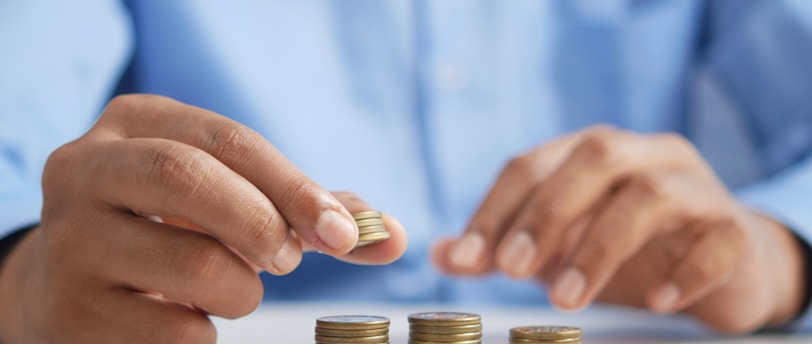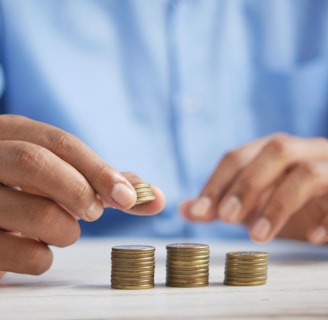Everything You Need to Know About Paying a Deposit When Buying a House in Queensland, Australia
Everything You Need to Know About Paying a Deposit When Buying a House in Queensland, Australia
2/29/20246 min read


Buying a house is an exciting and nerve-wracking experience, and one of the key aspects of the process is paying a deposit. The article discusses the key aspects of paying a deposit when buying a house in Queensland, Australia. A deposit is usually a fraction of the purchase price, up to 10%, and is paid to show that the buyer is serious about the purchase. The deposit is held in a trust account until settlement, and if the contract is cancelled under a condition, the deposit is usually refunded to the buyer. The amount of deposit payable is negotiated between the parties prior to signing the contract of sale. The deposit is initially paid into a trust account and held by the real estate agent or by one of the parties’ solicitors. The timing of the payment of the deposit is negotiated between the parties prior to signing the contract. If in doubt, it is important to seek legal advice in relation to the particular situation.
How much deposit do you need to pay?
When you’re buying a real property in Queensland, you’ll need to pay a deposit to show that you’re serious about the purchase. The deposit is usually a fraction of the purchase price, up to 10%. The amount of deposit payable is negotiated between the parties prior to signing the contract. If you’re not sure how much deposit you’ll need to pay, it’s important to ask your real estate agent or solicitor for advice.
Where is the deposit held?
When you pay a deposit on a house in Queensland, the money is held in a trust account until settlement. This means that the money is not available to either the buyer or the seller until the sale is finalised. The deposit is initially paid into a trust account and held by the real estate agent or by one of the parties’ solicitors.
What happens if the contract is cancelled or terminated?
If the house contract is cancelled under a condition, the deposit is usually refunded to the buyer. For example, if the contract is subject to finance and the buyer is unable to obtain finance, the contract may be cancelled and the deposit refunded. However, if the contract is cancelled due to a breach of contract by the buyer, the deposit may be forfeited.
When do you need to pay the deposit?
The timing of the payment of the deposit is negotiated between the parties prior to signing the contract. In some cases, the deposit may need to be paid within a certain timeframe after the contract is signed. In other cases, the deposit may need to be paid at settlement. It’s important to clarify the timing of the payment of the deposit with your real estate agent or solicitor before you sign the contract.
What will does the conveyancer do as part of the conveyancing process in relation to the deposit?
Your conveyancer or lawyer will have several responsibilities in relation to the deposit as part of the conveyancing process when purchasing a commercial property. These responsibilities may include:
Reviewing the sale contract: Your conveyancer will review the sale contract and advise you on the deposit amount, payment terms, and any other deposit-related obligations or requirements set out in the contract.
Holding the deposit in a trust account: Your conveyancer will typically hold the deposit in a trust account until settlement. This ensures that the deposit is kept safe and secure and is only released in accordance with the terms of the sale contract.
Ensuring payment of the deposit: Your conveyancer will advise you on how and when to pay the deposit to the seller or their representative. They will also advise you how to pay that deposit so that it is paid in accordance with the terms of the sale contract.
Confirming receipt of the deposit: Your conveyancer will confirm with the seller or their representative that the deposit has been received and provide you with a receipt or confirmation of payment, if they are the stakeholder.
Crediting the deposit at settlement: Your conveyancer will ensure that the deposit is credited towards the purchase price at settlement and that any balance owing is paid to the seller or their representative.
It is important to engage a qualified and experienced conveyancer or lawyer to assist you with the conveyancing process when purchasing a commercial property to ensure that all legal requirements are met and that the process runs smoothly.
FAQs
Q: Can I use my deposit as part of my home loan?
A: No, the deposit is a separate payment that shows you’re serious about the purchase. You’ll need to have the deposit amount plus any additional funds required for the purchase of the property.
Q: Can I negotiate the amount of deposit payable?
A: Yes, the amount of deposit payable is negotiated between the parties prior to signing the contract.
Q: What happens to the deposit if the sale falls through?
A: If the contract is cancelled under a condition, the deposit is usually refunded to the buyer. However, if the contract is cancelled due to a breach of contract by the buyer
Q: Who holds the deposit?
A: The deposit is initially paid into a trust account and held by the real estate agent or by one of the parties’ solicitors however is noted as the stakeholder on the contract of sale.
Q: When do I have to pay the deposit?
A: The timing of the payment of the deposit is negotiated between the parties prior to signing the contract.
Q: Should I seek legal advice before paying the deposit?
A: If in doubt, it is important to seek legal advice in relation to the particular situation.
Q: Do you have to pay a deposit to buy a commercial property?
A: Yes, it is common practice to pay a deposit when purchasing a commercial property. The deposit is usually a percentage of the purchase price, and the amount can vary depending on the negotiation between the buyer and the seller.
Q: Does the deposit come off the payment to the seller at settlement, who ensures this happens?
A: Yes, the deposit is usually deducted from the balance of the purchase price payable at settlement. The buyer’s lawyer or conveyancer will ensure that the deposit is credited towards the purchase price.
Q: Does paying a larger deposit reduce my stamp duty amount?
A: No, paying a larger deposit does not usually reduce the stamp duty amount. Stamp duty is calculated as a percentage of the purchase price of the property, and the amount payable is not affected by the amount of the deposit.
Q: Are there laws and regulations around deposits in QLD?
A: Yes, there are laws and regulations in Queensland that govern the payment and handling of deposits in property transactions. For example, the Property Agents and Motor Dealers Act 2000 (QLD) sets out requirements for real estate agents and property developers who handle deposits, and the Queensland Law Society provides guidelines on how deposits should be handled by lawyers and conveyancers. It is important to seek advice from a legal professional who is familiar with the laws and regulations in Queensland to ensure that all legal requirements are met.
Paying a deposit when buying a house in Queensland, Australia is an important aspect of the buying process. The deposit is usually a fraction of the purchase price, up to 10%, and is paid to show that the buyer is serious about the purchase. The amount of deposit payable is negotiated between the parties prior to signing the contract. The deposit is initially paid into a trust account and held by the real estate agent or by one of the parties’ solicitors. The timing of the payment of the deposit is also negotiated between the parties prior to signing the contract.
Q. Can I pay the deposit via cheque?
A. Yes, it is usually possible to pay the deposit for a commercial or residential property via cheque. However, this may depend on the preferences of the seller and the terms of the sale contract.
It is important to note that paying the deposit via cheque may result in a delay in the clearance of funds, which could impact the timing of the settlement or breach of contractual terms. It is also possible that the seller may require a different form of payment, such as a bank transfer or a deposit bond.
Before paying the deposit, it is important to confirm with the seller or their representative the preferred method of payment and any specific requirements for payment of the deposit.
Q. Will my conveyancers pay my deposit?
A. No, your conveyancer will typically not pay your deposit when purchasing a property. It is the responsibility of the buyer to pay the deposit directly to the seller or their representative.
THis is general advice only, for specific legal advice please contract your expert legal representative.
